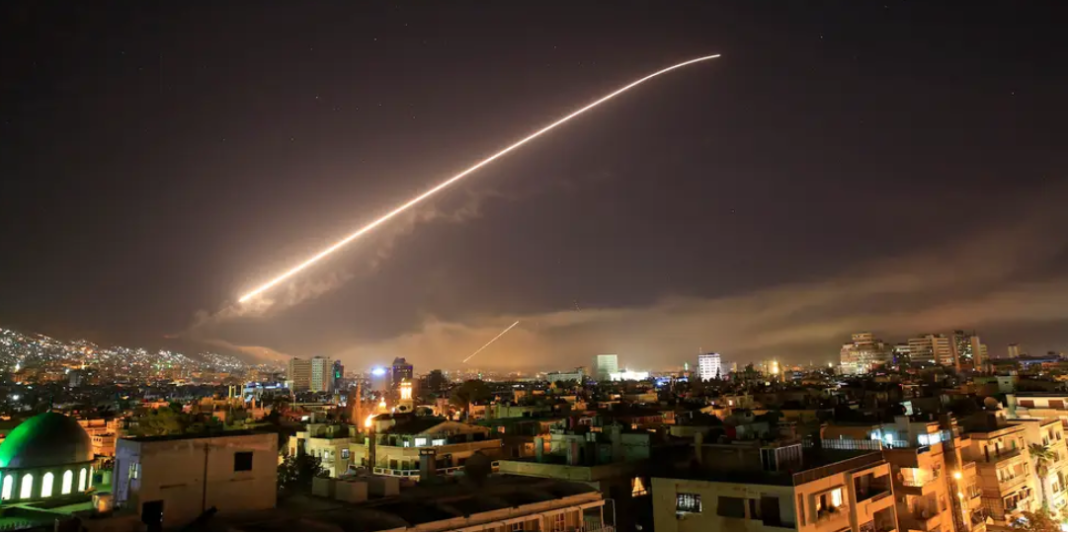(Ottawa Citizen) Canadian Forces personnel were involved in a controversial U.S. military team that has been accused of killing scores of innocent people in Iraq and Syria.
But details about the Canadian special forces role in the team, code-named Talon Anvil, have not been released. One Canadian special forces soldier was part of the 20-member team in 2015 while other Canadian military personnel played supporting roles or were briefed on its activities, according to documents obtained by the Ottawa Citizen as well as information provided by military sources.
In December 2021, the New York Times revealed that Talon Anvil was responsible for launching tens of thousands of bombs and missiles against the Islamic State in Syria and Iraq but in the process had killed hundreds of civilians. The reckless actions of the Talon Anvil team, which operated from 2014 to 2019, alarmed members in the U.S. military and even the C.I.A., the Times reported.
Rules designed to protect civilians were circumvented. People who had no role in the conflict, including farmers trying to harvest crops, children playing in the streets, families fleeing fighting, and villagers sheltering in buildings, were killed, the New York Times investigation found.
Two days after that newspaper published the first of several articles on Talon Anvil, Canadian Special Operations Forces Command (CANSOFCOM) raised concerns that questions could arise about its own involvement in the team.
“Were any allegations as described in the NYT article known to CANSOFCOM leadership at the time or have come to light since?” one officer noted in an email to Brig. Gen. Martin Gros-Jean.
Gros-Jean was appointed in 2020 to a new position as deputy commander support, which oversees the daily force management of CANSOFCOM.
The advice and information provided to Gros-Jean was censored entirely from the documents obtained by the Ottawa Citizen using the Access to Information law. The Canadian Forces cited reasons of national security for withholding the information.
But National Defence, in a separate statement to this newspaper, has acknowledged one Canadian special forces member was part of Talon Anvil. The department did not provide details on what role the individual performed on the 20-member team but noted the special forces soldier was embedded with the U.S. military at the time.
Talon Anvil was led by U.S. special forces known as Delta. CANSOFCOM has a close relationship with Delta, as well as other U.S. special forces.
The Canadian special forces soldier was assigned to Talon Anvil from April to October of 2015, according to the department. “CANSOF Command leadership is aware of allegations against the U.S. military unit, which was investigated at the time by U.S. Forces,” the statement added. “As the investigation was U.S.-led, we have no additional information to provide.”
The New York Times reported that only one airstrike launched by Talon Anvil that resulted in civilian deaths is being examined. Talon Anvil, which was located in Erbil, Iraq, and later moved to Syria, was responsible for around 80 per cent of the 112,000 bombs and missiles launched at Islamic State targets.
Independent investigators and human rights groups have estimated that at least 7,000 civilians were killed by coalition airstrikes in Iraq and Syria.
National Defence noted that Royal Canadian Air Force personnel were not assigned to the Talon Anvil team. But it is unclear what role, if any, Talon Anvil played in Canada’s airstrikes on Islamic State forces.
Talon Anvil had three groups working around the clock gathering information from allied ground troops, including Canadian special forces, as well as surveillance data collected by drones and other aircraft and intercepts of radio and electronic transmissions.
Canadian CF-18 fighters conducted 251 airstrikes from Oct. 30, 2014, to Feb. 15, 2016. At total of 606 bombs were dropped, mostly on targets in Iraq. The Canadian Forces has stated that it has no information about any civilian casualties from those bombing missions.
Pentagon officials, however, have acknowledged it was difficult to get reliable counts of civilian deaths or investigate allegations innocents were killed in bombing raids as most occurred in territory controlled by the Islamic State.
The previous Conservative government sent Canadian special forces to northern Iraq to train Kurdish troops starting in 2014. That program was expanded by the Liberal government, with Canadian special forces calling in airstrikes and taking part in gun battles with enemy forces. At the time, the Liberal government and the Canadian military leadership insisted that such activities shouldn’t be seen as combat.
The Canadian military did release some details on the fighting as part of its strategic communications strategy. For instance, it co-ordinated the release of information to the news media in 2017 about a Canadian special forces sniper making a kill shot on an Islamic State gunman almost 3.5 kilometres away.
That information was released just days before the Liberal government’s announcement it was renewing the Iraq mission for two years. It was designed to highlight what the Liberals and military say was a successful mission, defence sources noted at the time.


